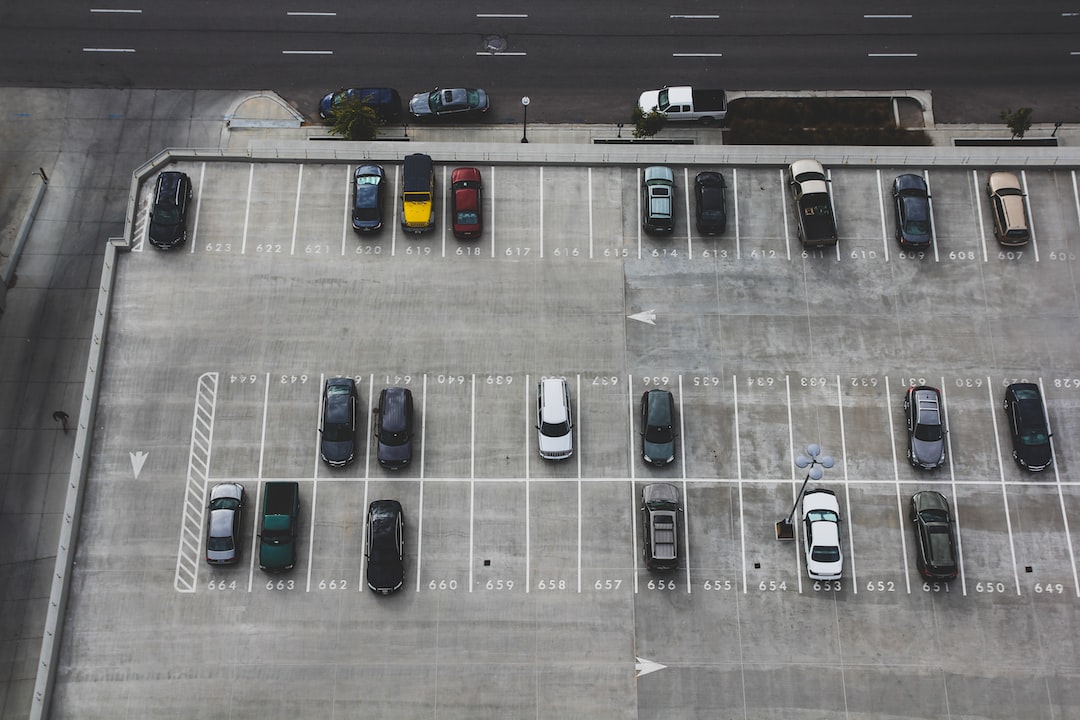What Are The Key Features of a Parking Management System?

Parking management systems have revolutionised the way we handle parking spaces in today’s fast-paced world. With the growing number of vehicles on the roads, efficient parking management has become a necessity.
A parking management system encompasses a range of technologies and solutions designed to optimise parking space usage, enhance user experience, and improve overall traffic flow. In this blog post, we will explore the key features of a comprehensive parking management system and how it benefits both parking operators and users.
Key Features of a Parking Management System
1) Automated Parking Solutions
a) Integration of Smart Parking Systems
Modern parking management systems leverage smart technologies to automate various processes. These systems integrate parking sensors and cameras to monitor occupancy, providing real-time data on available parking spaces. The information is then relayed to users through mobile apps or digital signage, streamlining the parking process.
b) IoT-based Parking Sensors
The Internet of Things (IoT) plays a crucial role in parking management. IoT-based parking sensors can detect vehicle presence and vacancy in real-time. They transmit this data to a centralized platform, enabling parking operators to manage their lots more efficiently and ensuring users can quickly find available parking spaces.
c) License Plate Recognition Technology
License plate recognition (LPR) technology allows seamless entry and exit from parking facilities. Cameras equipped with LPR technology can read license plate numbers, enabling automated access control without the need for physical tickets or tokens.
2) Real-Time Parking Availability
a) Parking Space Monitoring
Parking management systems offer real-time monitoring of parking spaces, allowing users to access up-to-date information about available parking spots. This feature saves time and reduces frustration, as drivers can quickly locate a suitable parking space.
b) Mobile Applications for Parking Updates
Mobile apps have become indispensable tools for modern drivers. Parking management systems often come with user-friendly mobile applications that provide real-time parking updates, directions to available spots, and even the option to reserve parking spaces in advance.
c) Digital Signage and Parking Guidance Systems
Digital signage displays within parking facilities can guide drivers to vacant spaces efficiently. These interactive systems display the number of available spots on each level or aisle, making it easier for drivers to find parking quickly.
3) Online Booking and Reservation
a) Pre-booking Parking Spaces
Online booking and reservation systems allow users to secure parking spots in advance, ensuring a stress-free parking experience during peak hours or busy events. Pre-booking also benefits parking operators by predicting and managing demand.
b) Reservation Platforms and Apps
Various web-based reservation platforms and mobile apps enable users to book parking spaces remotely. These platforms usually support multiple payment options, making it convenient for users to secure their parking spot in just a few clicks.
c) QR Codes and E-Ticketing for Entry/Exit
Upon reservation, users receive QR codes or e-tickets that grant them access to the parking facility. This contactless entry and exit process enhance user convenience and reduce the need for physical tickets or passes.
4) Payment and Billing Systems
a) Cashless Payment Options
Modern parking management systems promote cashless transactions, allowing users to pay for parking through various digital methods, such as credit cards, mobile wallets, or payment apps.
b) Mobile Payment Solutions
Mobile payment solutions enable users to pay for parking directly through their smartphones, simplifying the payment process and reducing the reliance on traditional payment methods.
c) Integration with Payment Gateways
Parking management systems often integrate with secure payment gateways, ensuring smooth and secure transactions for both users and parking operators.
5) Parking Access and Security
a) Automated Entry/Exit Barriers
Automated entry and exit barriers are a fundamental part of parking management systems. These barriers operate based on user access control, whether through ticket scanning, license plate recognition, or mobile app authorization.
b) RFID and NFC Technologies
Radio Frequency Identification (RFID) and Near Field Communication (NFC) technologies are commonly used for contactless access control in parking facilities. Users can simply tap their RFID cards or NFC-enabled smartphones to gain entry.
c) Surveillance Cameras and Monitoring
To ensure parking security, surveillance cameras are strategically placed throughout parking facilities. These cameras help monitor vehicle movements, discourage illegal activities, and provide an added layer of safety for users and their vehicles.
6) User-Friendly Interface
a) Intuitive Mobile Apps and Websites
A user-friendly interface is crucial for enhancing the overall user experience. Parking management systems offer intuitive mobile apps and websites with easy-to-navigate features, making it convenient for users to access parking information.
b) Voice-Activated Parking Assistance
Innovative parking systems even include voice-activated parking assistants, enabling users to inquire about parking availability and receive real-time updates hands-free while driving.
c) Multilingual Support for Users
In multicultural environments, multilingual support in parking management systems caters to a diverse user base, ensuring all users can easily interact with the system.
7) Data Analytics and Insights
a) Collection of Parking Data
Parking management systems collect valuable data, such as occupancy rates, peak hours, and user preferences. Analyzing this data provides valuable insights to optimize parking operations and enhance user experience.
b) Analyzing Parking Trends
By analyzing parking data, operators can identify trends and patterns, allowing them to make informed decisions about pricing, capacity planning, and resource allocation.
c) Improving Parking Infrastructure
Data-driven insights enable parking operators to identify areas for improvement and implement changes that optimize parking infrastructure and overall efficiency.
8) Integration with Navigation Apps
a) Seamless GPS Integration
Parking management systems can integrate with popular navigation apps to provide users with seamless directions to the nearest available parking spaces.
b) Real-Time Directions to Available Parking
Integration with navigation apps offers real-time updates on parking availability and directions, reducing traffic congestion and improving overall traffic flow.
c) Reducing Traffic Congestion
With users receiving real-time parking availability information through navigation apps, they can make informed decisions, reducing unnecessary traffic congestion caused by drivers searching for parking.
9) Sustainability and Green Initiatives
a) Electric Vehicle (EV) Charging Stations
Parking management systems can include provisions for electric vehicle charging stations, promoting sustainability and encouraging the adoption of electric vehicles.
b) Eco-Friendly Parking Solutions
Some parking management systems implement eco-friendly features such as LED lighting, solar-powered facilities, and green building materials, reducing the environmental impact of parking operations.
c) Incentives for Carpooling
To further promote sustainability, parking management systems can offer incentives for carpooling, encouraging users to share rides and reduce the number of vehicles on the road.
10) Maintenance and Support
a) Regular System Maintenance
Parking management systems require periodic maintenance to ensure seamless operation and prevent potential issues.
b) 24/7 Customer Support
A reliable customer support system provides assistance to users in case of any technical difficulties or inquiries, ensuring a positive experience.
c) Troubleshooting and Issue Resolution
Prompt troubleshooting and issue resolution are essential to minimize downtime and ensure continuous service availability.
11) Scalability and Customization
a) Adapting to Different Parking Facilities
Parking management systems should be scalable and flexible enough to accommodate various types of parking facilities, including garages, lots, and on-street parking.
b) Modular Features for Custom Solutions
Modular features allow parking operators to tailor the system to meet their specific needs, ensuring a customized solution that fits their requirements.
c) Expansion and Future-Proofing
With technology evolving rapidly, parking management systems should be designed with the capacity for future expansion and integration of new features.
Conclusion
Parking management systems have transformed the way we approach parking. While it is not necessary for a parking management system to have all the features listed above, a suitable system will have the features that are most relevant to you.
At Sensor Dynamics, we offer a range of parking solutions tailored to meet your requirements. Contact us to find out more about our parking management solutions.
Frequently Asked Questions (FAQ)
What is a parking management system?
A parking management system is a comprehensive solution that uses various technologies and tools to efficiently manage parking spaces in a designated area. It employs automated processes, real-time data, and user-friendly interfaces to optimize parking availability, enhance user experience, and improve overall traffic flow.
How does a parking management system work?
Parking management systems utilize smart technologies such as IoT-based parking sensors, license plate recognition, and mobile apps to monitor parking space occupancy in real-time. This data is then relayed to users through digital signage or mobile applications, guiding them to available parking spots. Additionally, online booking and reservation features allow users to secure parking spaces in advance, while cashless payment options simplify the payment process.
What are the benefits of using a parking management system?
Using a parking management system offers several benefits, including time and fuel savings for users due to reduced search time for parking spaces, increased revenue generation for parking facility owners through efficient space utilization, improved traffic flow and reduced congestion in parking facilities and surrounding areas, and enhanced user experience with real-time updates, mobile apps, and contactless payment options.
Can I reserve a parking space in advance?
Yes, many parking management systems offer online booking and reservation features. Users can conveniently reserve parking spaces in advance, ensuring a stress-free parking experience, especially during busy hours or special events.
What payment options are available with parking management systems?
Parking management systems typically offer a range of cashless payment options. Users can make payments using credit cards, mobile wallets, or payment apps, promoting a seamless and secure transaction process.
Are parking management systems secure?
Yes, parking management systems prioritize security and privacy. Access control measures, such as license plate recognition and RFID/NFC technologies, ensure only authorized vehicles enter the parking facility. Additionally, these systems implement data encryption and secure payment gateways to safeguard user information.
How do parking management systems contribute to sustainability?
Parking management systems contribute to sustainability by encouraging the use of electric vehicles through the provision of EV charging stations. Moreover, eco-friendly initiatives, such as LED lighting and solar-powered facilities, reduce the environmental impact of parking operations.
Can parking management systems be customized for different facilities?
Yes, parking management systems are designed to be scalable and customizable. They can be tailored to suit various types of parking facilities, including garages, lots, and on-street parking, ensuring a tailored solution to meet specific needs.
How do parking management systems handle maintenance and support?
Parking management systems require regular maintenance to ensure smooth operation. Providers typically offer 24/7 customer support for troubleshooting and issue resolution, minimizing downtime and ensuring continuous service availability.
How do parking management systems help reduce traffic congestion?
Parking management systems contribute to reducing traffic congestion by providing real-time parking availability updates to users. This helps drivers quickly find available parking spaces, minimizing unnecessary circling and traffic build-up around parking facilities.
If you have any other questions or need further information, feel free to reach out to our customer support team. We are here to assist you!



